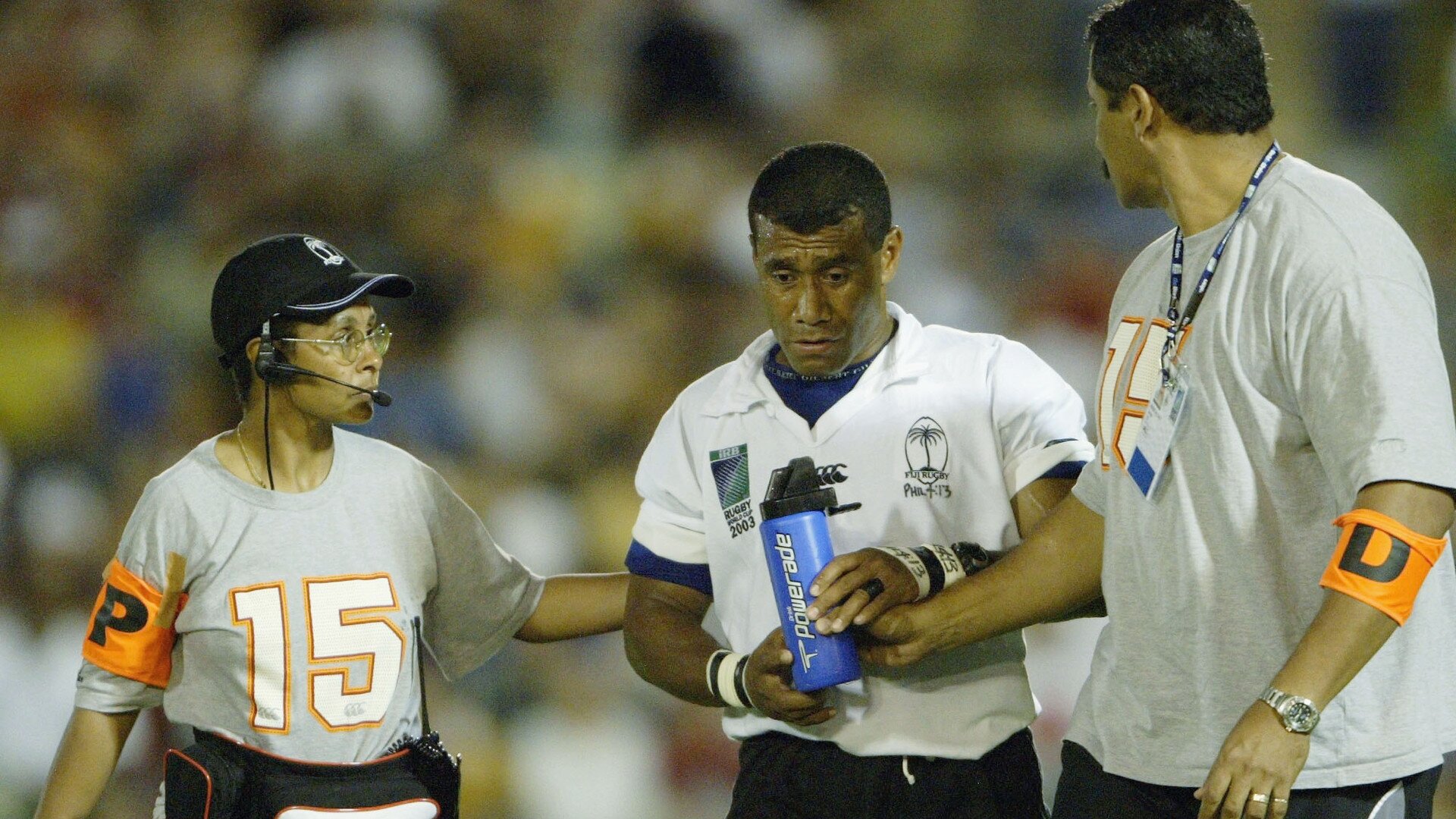'Maybe 10 percent of the players are earning what they're supposed to earn'

From his home in Seattle far in the northwest of America, Waisale Serevi watched Fiji’s joyous autumn conquering of France, his heart exploding with pride.
Against all the odds, battling a gross financial disparity, meagre preparation time, tackling a Tier One heavyweight on their own patch, his boys did it.
Theirs is a cruel dilemma. The Pacific Islands spawn the most incredible raw talent but haven’t the resources to harvest the gold on their doorstep or safeguard it from exploitation.
Serevi is probably Fiji’s most storied export, his exhilarating feats across two decades traversing the world as a sevens galactico etched into rugby lore.
“We’ve shown the world what can happen,” he says. “We’ve beaten France, it’s history for us and a stepping stone, even though France is not doing well in international rugby.
“It’s a platform for us to go to the World Cup knowing that we can win at that level if we stay to the structure, the discipline and the patience.
“Individually we are maybe a little bit better than some other players in the world. One-on-one a Fijian player can beat our opposition. Our forwards are faster and skilful; our backs are faster and stronger. But to be the best, you need to attack and defend as a team and have very good structure.
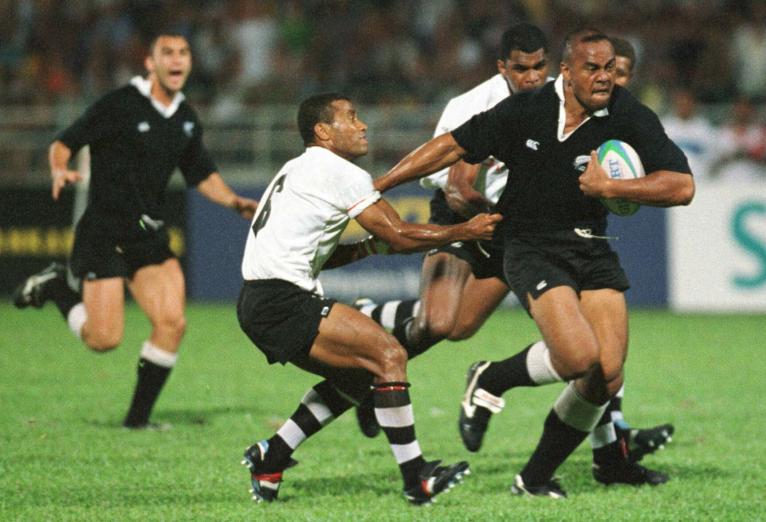
“The only thing that separates the best teams in the world is patience and discipline. The top teams are creating 15 phases to score tries or get three points. From my point of view, definitely, we need to play a lot of Tier One nations and compete on that level so that we can be competitive and had the opportunity.”
Many of Fiji’s current squad play their club rugby in Europe. In the earliest days of professionalism, Serevi spent time in Japan, at Leicester Tigers and with several teams in France. That stint at Welford Road was eye-opening, a window into the world of the burgeoning elite and the ferocity with which they went about their business.
“In the islands, you try and make fun at training – it’s not that serious until you go on to the field. In professional rugby, you need to be punctual, you eat together, live together as a team,” Serevi says.
“You have to train like you play. The training is very competitive. I played with all those great players – Neil Back, Martin Johnson, Will Greenwood, Joel Stransky, Austin Healey – all those guys compete.
“When we train and do attack-defence, sometimes there’s a big fight, especially when Austin Healey is there!
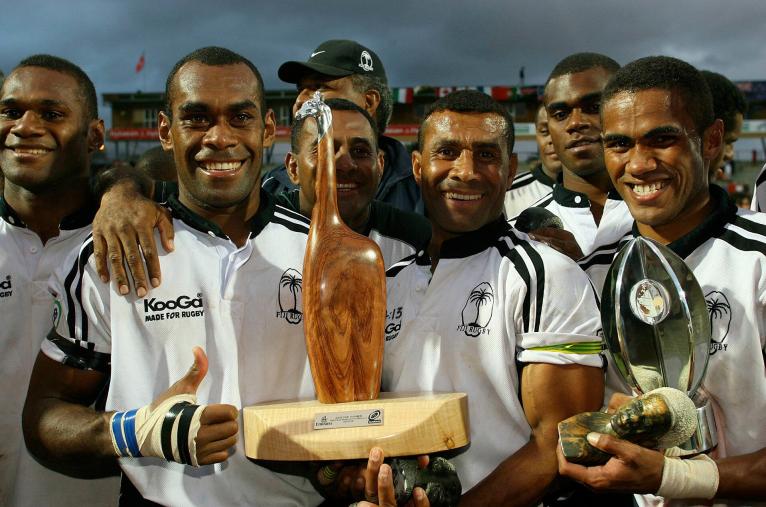
“When the island boys experience that professional set-up, they become a better rugby player and a better person. They know what is good and bad and when they go back to their country, they share it with their team.”
You can reel off a long list of Fiji-born professionals who have taken the opportunity to represent their adopted nations after serving three years of residency. Taqele Naiyaravoro, Henry Speight and Marika Koroibete are all Wallabies. Virimi Vakatawa and Noa Nakaitaci play for France, Nathan Hughes for England, Samuela Vunisa for Italy and Waisake Naholo, who moved to New Zealand in his late teens, is now a World Cup-winning All Black.
“No matter how we change the laws in international rugby, it comes down to financial gain for these lads,” Serevi says.
“The Fiji, Tonga and Samoa Rugby Unions definitely cannot look after the players. I support and congratulate them. There is an opportunity for them to support their families.
“The only thing that I ask for these teams, Australia, New Zealand, that have a lot of Pacific Islands players with them, the least they can do is try and support the island teams by playing Tests against them. That is the only way that we can gain from losing our players.
“A lot of our players are scattered all over the world, it is always difficult to bring people together. The boys came together like five days before losing to Scotland – playing a Test match in five days is really hard.
“I always watch our team celebrate winning against Tonga and Samoa. That is not the one. We need to go up and beat New Zealand, Australia, South Africa – then we celebrate.”
Serevi wants overseas clubs to manage their Pacific incomers carefully, be cognisant of their culture and the challenges of swapping island life for a western city. Generally, European teams are getting better at this, and the Pacific Rugby Players Welfare group put in a power of work to look after the vulnerable.
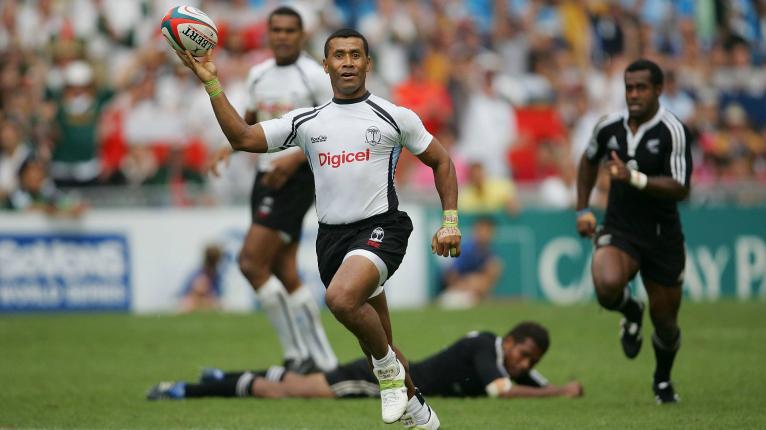
In Scotland, for instance, Viliame “Big Bill” Mata has emerged as one of the best number eights in the world, thanks in part to the way Edinburgh have helped him and his family adjust to the bustle, the climate and the way of life.
“They’re not paid a lot of money but these players are very good. They play better than people who get paid more than them. Maybe 10% of the players are earning what they’re supposed to earn,” Serevi believes.
“They play their hearts out, they play really good rugby, and they bring fans over to watch because of the way they play. These clubs must look after the players. Talk to them and ask questions and try and help them.
“The islanders are very good players but for us, saying no is difficult, even though we are facing difficulties. It’s like a cultural thing for us, the respect is always there.
“If they’re supposed to get something and they’re not getting it, they keep quiet. A lot of people ask the question, ‘are you ok?’ They always say, ‘yes, we are ok’.
“People at home are relying on them, the whole community is thinking they are getting millions of dollars and they are struggling even to support their families.”
Serevi lived that life and felt those pressures. Eventually, when he was sacked as Fiji Sevens head coach nearly a decade ago, they took their toll.
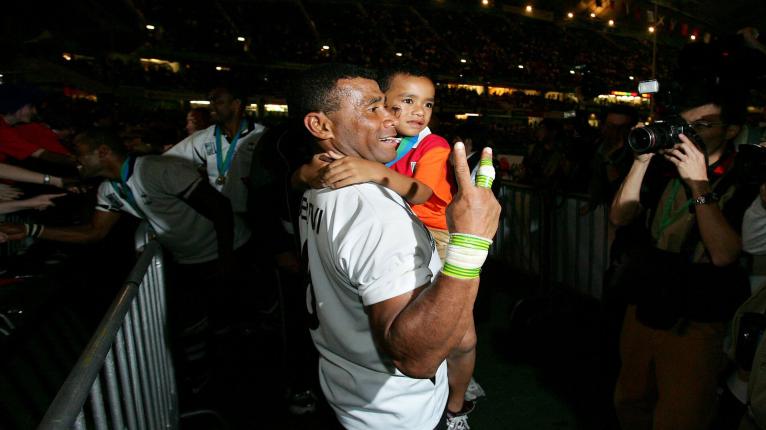
In a book published earlier this year that charts his rugby voyage, Serevi is depicted as penniless, depressed and addicted to alcohol. At the end of a wonderful career, the little maestro was on his knees. The book says his troubles stemmed from financial mismanagement, low wages during his playing days and his own generosity, sending money and barrow-loads of rugby kit back to his community, before a tax audit gobbled up what little he had saved.
“That one year that was my low time, I kept saying to myself, I did great things for 21 years at international level, this is just a test,” Serevi recalls.
“I need to get up and keep going and stay positive and try and support my family. At one stage, I was hearing thousands of people at the stadium cheering for me. And now, when I was at my low time, the thing that motivated me was my family – I can hear four voices, my wife and my three kids, cheering me and saying, you can do better, keep going. That kept motivating me and I thank god for the door that opened. We are blessed we are here.”
“The door that opened” came in the form of a trip to Canada, where Serevi had been asked to play for a Fijian invitational team. There, he would meet his business partner-to be, and with great help from those in Seattle rugby, was able to forge a new life coaching in America.
His company, now called Atavus Rugby, blossomed. He worked to introduce rugby-style tackling to the Seattle Seahawks, who won the 2013 Super Bowl and became renowned for their defensive menace.
Now, a new challenge beckons. Serevi is a sevens head coach again. He was placed in charge of Russia in October, his goal to lead them back to the World Series and into the Tokyo 2020 Olympic Games. In his first tournament at the helm, Russia finished fourth in the second-tier Dubai International Invitational event. Serevi wants to immerse himself in Russian life and scour the country for talent.
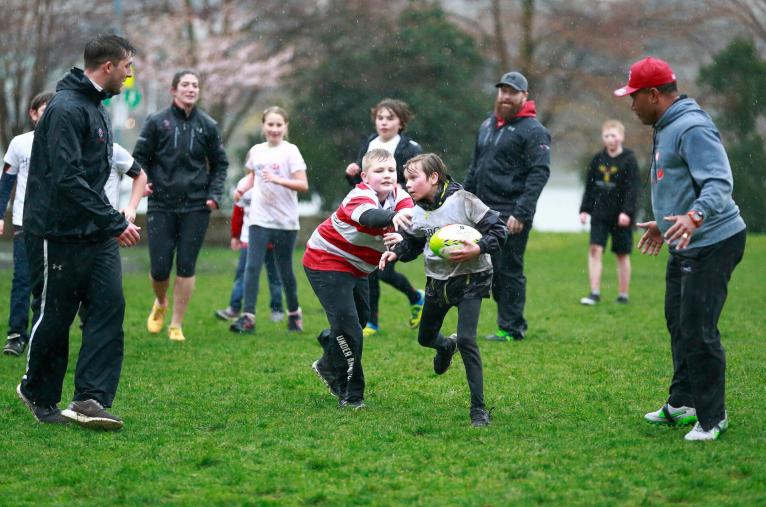
“With new things, new attacking and defensive structure, a lot of decision-making, I thought the boys did well,” Serevi says.
“I was excited and watching the video for the last couple of days and I know what we can get better at for the next tournaments in Uruguay and Chile in January.
“The players we have now are the players they already selected because they were short of time. I would love to go around and watch XVs rugby games, watch the Russian sevens tournament that is starting soon. I want to be out there scouting for talent because that’s what I am good at.
“As soon as I see players I know whether they can survive. That’s what I saw when we went to Dubai. Some players can perform at club sevens, the next level up is the invitational international sevens. Even in Dubai, I saw some that can’t go to the next level – they can’t even compete at this level.
“That’s the main reason I wanted to go out and hunt for untapped talent, so that we have good depth.”








































































